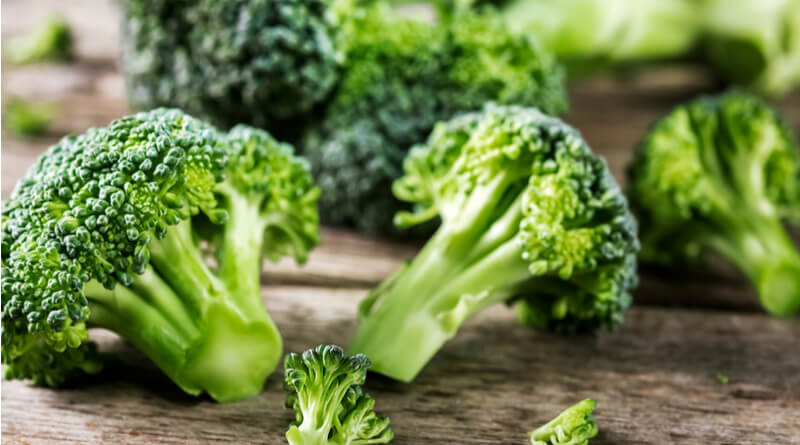Broccoli is one of the best vegetables that you can eat for your health, hands down. It isn’t normally labeled as a super food because it is a cruciferous vegetable; maybe it’s more apt to call it a super cruciferous. It deserves this title, because its health benefits are nothing short of splendid. There really isn’t anything that broccoli can’t do for you (there’s actually a lot that broccoli can’t do). Some of the biggest benefits of regularly consuming broccoli are: improving digestion, preventing cancer, lowering cholesterol levels, detoxing the body, and maximizing the efficacy of vitamin and mineral absorption.
What’s in broccoli that gives it so many health benefits?
Broccoli has a full gambit of essential vitamins and minerals that your body needs, including protein, fats, dietary fiber, calcium, iron, magnesium, phosphorous, potassium, and sodium. It also has vitamin A, thiamine, lutein zeaxanthin, niacin, riboflavin, and pantothenic acid, just to name a few more compounds that broccoli is working with. Finally, broccoli has some rather unique compounds that are hard to come by elsewhere, such as, phytonutrient glucosinolates, flavonoids like kaempferol, and isothiocyanate.
How to eat broccoli
Now that you have an idea of what broccoli is all about, you’re probably wondering how you get as much broccoli in your diet as possible. Fortunately for you, broccoli is a very versatile vegetable. You can prepare it any number of different ways to make it so that it can suit your pallet without a problem.
There are lots of recipes and preparation styles to try:
- Grilled beef with broccoli
- Broccoli Caesar
- Broccoli and egg fried rice
- Broccoli and garlic ricotta toasts with hot honey
- Broccoli salad with peanut dressing
- Broccoli Bolognese with orecchiette
And if these dishes are too fancy for you, you can just eat it raw, there’s really no wrong way to eat broccoli.








